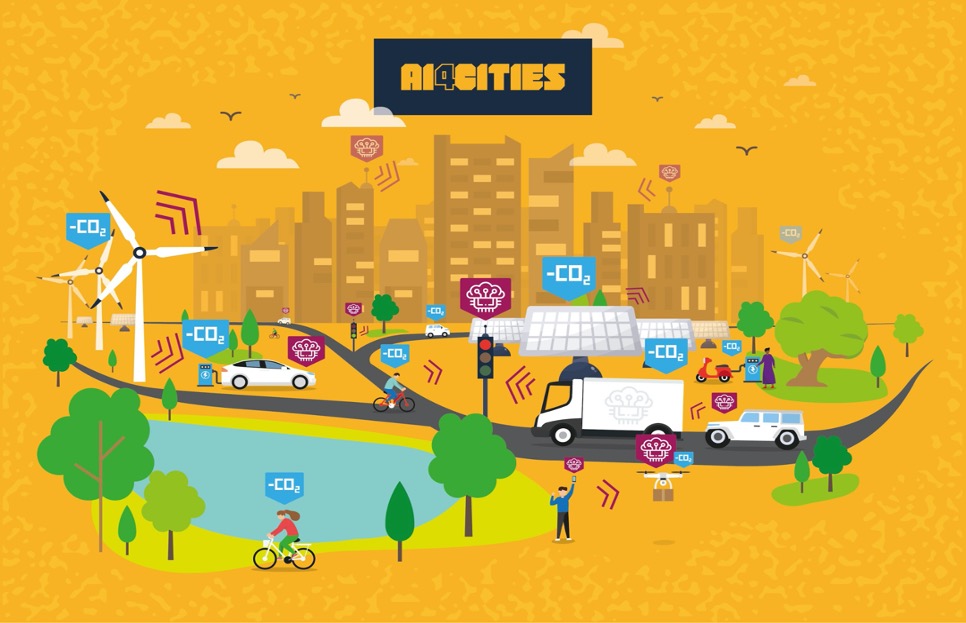AI4CITIES: using AI for the optimal distribution of shared mobility vehicles
AI4CITIES: using AI for the optimal distribution of shared mobility vehicles
A consortium of European cities have joined forces for the AI4Cities Challenge, a Pre-Commercial Procurement (PCP) process funded through Horizon Europe. The purpose of the PCP is to inspire/encourage start-ups and innovative companies to design new technologies that can help cities solve pressing problems.

The challenge
The AI4Cities Challenge is designed to address a critical urban challenge: the need to rapidly decarbonize the transport and building sectors. Rebel and Vianova, focused on developing a tool that can give insights and policy recommendations for redistributing shared mobility that minimizes carbon emissions in the city.
The approach
Our solution is named the Mobility Policy Auto-Tuner (MPAT), and builds on Vianova’s existing Cityscope platform. The Cityscope platform is used by nearly two dozen major cities across Europe to design, communicate, and monitor policies of shared mobility operators. The platform excels at bridging the communication between operators and the cities that regulate them. The MPAT expands this communication to include novel, highly targeted policy solutions that are not just about regulating and resolving the “bad” aspects of shared mobility but optimising and promoting the “good”.
So how does our solution work? MPAT is designed to better balance the positive and negative impacts of shared mobility to best achieve policy goals through artificial intelligence. Policymakers set the relative weights of priorities such as desired CO2 reduction, reduced impact of parked devices, or increased utilization of vehicles. MPAT then suggests a set of policy interventions to achieve the best results. The policymaker selects those she wishes to pursue, and the tool automatically informs operators of the change in policy (through Vianova’s existing Cityscope platform), and monitors the change in KPIs while the policy is in effect. This feedback loop informs future policymaking in both the policymaker’s city and in the network of cities using the MPAT tool.
Read more about Horizon Europe
Impact
Policymakers now have the tool to make proactive policy for optimal distribution of shared mobility vehicles.